Introduction
Advocacy for autism is a multifaceted endeavor that goes beyond raising awareness. It requires strategic action, community engagement, and a commitment to the well-being of autistic individuals. In this article, we explore the importance of advocacy and its transformative power in shaping inclusive policies and practices.
We delve into key principles for effective advocacy, emphasizing the value of passion, informed action, information sharing, and respect for Autistic identity. Furthermore, we examine the significance of person-centered and dignity-promoting support, highlighting the need for equitable resources and environments that recognize the strengths and challenges of autistic individuals. The article also emphasizes the importance of ensuring safety, health, and happiness for autistic individuals, addressing mental health support, inclusive spaces, and the prevention of wandering incidents.
We explore recommended interventions and strategies, focusing on communication-based interventions, behavioral and educational interventions, medical support, and co-existing conditions. Additionally, the article discusses evaluating the effectiveness of interventions, involving professionals and trusted resources, and promoting empathy and personalized advocacy. It also emphasizes the importance of creating inclusive environments, advocating for individualized education plans (IEPs) and SEND plans, and promoting social integration while reducing isolation.
Overall, this article provides guidance and resources to empower Parent Advocates in navigating challenges and ensuring the well-being of their children on the autism spectrum.
Understanding the Importance of Advocacy for Autistic Individuals
Advocacy is more than just a passionate response to the needs of autistic individuals; it's a strategic and critical endeavor that requires clear goals, effective action, and a community-driven approach to truly foster inclusion and acceptance. Advocacy isn't merely about speaking up; it involves informed action, like the global scientific community's shift to open science during the pandemic which fast-tracked vital research and vaccine development. This same principle applies to supporting autism, where shared knowledge and collaboration can lead to breakthroughs in understanding and support.
Real-world examples of effective advocacy include Haley Moss, an autistic attorney whose personal journey underscores the importance of support systems in achieving one's potential. Similarly, Mr. Harris's innovative use of picture boards demonstrates how small-scale interventions can have life-changing impacts for non-speaking autistic children. These stories highlight the transformative power of advocacy that is rooted in personal experience and the commitment to public service.
Furthermore, avenues like the AT-Newswire Press Release News Distribution Service and the opportunity to submit comments to the IACC on autism research represent how technology and policy engagement can amplify the voices of the autistic community. The impact of advocacy is also evident in the Kevin and Avonte Program, which focuses on preventing wandering incidents among autistic individuals—a critical safety concern brought to the forefront by community-led initiatives.
In essence, advocacy for autism is a multifaceted effort that thrives on passion, involves direct community engagement, and leverages strategic actions to create meaningful change. It's a movement that not only raises awareness but also actively contributes to the well-being and empowerment of autistic individuals by shaping inclusive policies and practices.
Key Principles for Effective Advocacy
In the realm of autism advocacy, embracing a set of core values is paramount to safeguarding the dignity and rights of autistic people and fostering significant progress. These values not only shape our intentions but also enhance the impact of our efforts. An advocate's fervor is the lifeblood of their dedication, triggering a desire to drive change.
However, fervor alone is not enough; it must be channeled through effective actions grounded in executive functioning skills, which include the ability to organize, strategize, and execute plans.
One of the key strategies in advocacy is the dissemination of information, which can significantly amplify a cause's visibility. Sharing insights with your network or engaging with policymakers can create an uptick in awareness and support. For instance, open science—a movement advocating for the unrestricted sharing of scientific knowledge—exemplifies how collaboration and transparency can accelerate progress, as seen during the COVID-19 pandemic when rapid vaccine development was made possible through such principles.
Moreover, the concept of Autistic identity is crucial, recognizing that being a part of the autism community profoundly influences one's self-perception and social interactions. Adolescence and early adulthood are critical periods for identity formation, which underscores the importance of supporting Autistic individuals during these transitional phases to foster a sense of continuity and self-differentiation.
By integrating these principles—passion, effective action, information sharing, and respect for Autistic identity—into our advocacy, we can ensure our endeavors are not only fervent but also fruitful and respectful of the diverse experiences within the autism community.
Person-Centered and Dignity-Promoting Support
The journey of supporting autistic individuals is akin to leveling the playing field, ensuring that every child, regardless of neurological differences, has the opportunity to thrive in educational and social environments. This principle echoes the sentiment by Dr. David (Dan) R. Offord, who believed in fairness for all children in the race of life. It is critical to acknowledge the assets autistic individuals bring to their communities and reduce the chronic stress they may face.
True equity is achieved when we provide the resources needed for their healthy development and the well-being of their families.
As highlighted by the neurodiversity movement, which views autism as a natural variation of the human brain, it's essential to shift from a medical model of autism to one that is person-centered and strengths-based. This perspective was echoed by Mr. Harris, whose advocacy for his non-speaking son led to the installation of picture boards in Peterborough, exemplifying how accommodations can significantly enhance communication and learning.
Embracing autistic identity encompasses recognizing the personal and social aspects that form an integral part of being autistic. During pivotal stages like adolescence and early adulthood, the formation of a clear and stable identity is vital for personal continuity and social differentiation. The neurodiversity-affirming practice champions creating supportive environments that respect the autonomy of autistic individuals while recognizing the challenges they may face.
Acknowledging the importance of person-centered approaches helps us to forge a path where autistic individuals are not only supported but are empowered to engage meaningfully in all aspects of life, from school to community involvement. This aligns with broader social movements advocating for civil rights and equality, underscoring the impact of societal inclusion for those with disabilities. By focusing on their specific needs and potential, and by working towards fair and supportive participation, we can ensure dignity and respect for the autistic community.
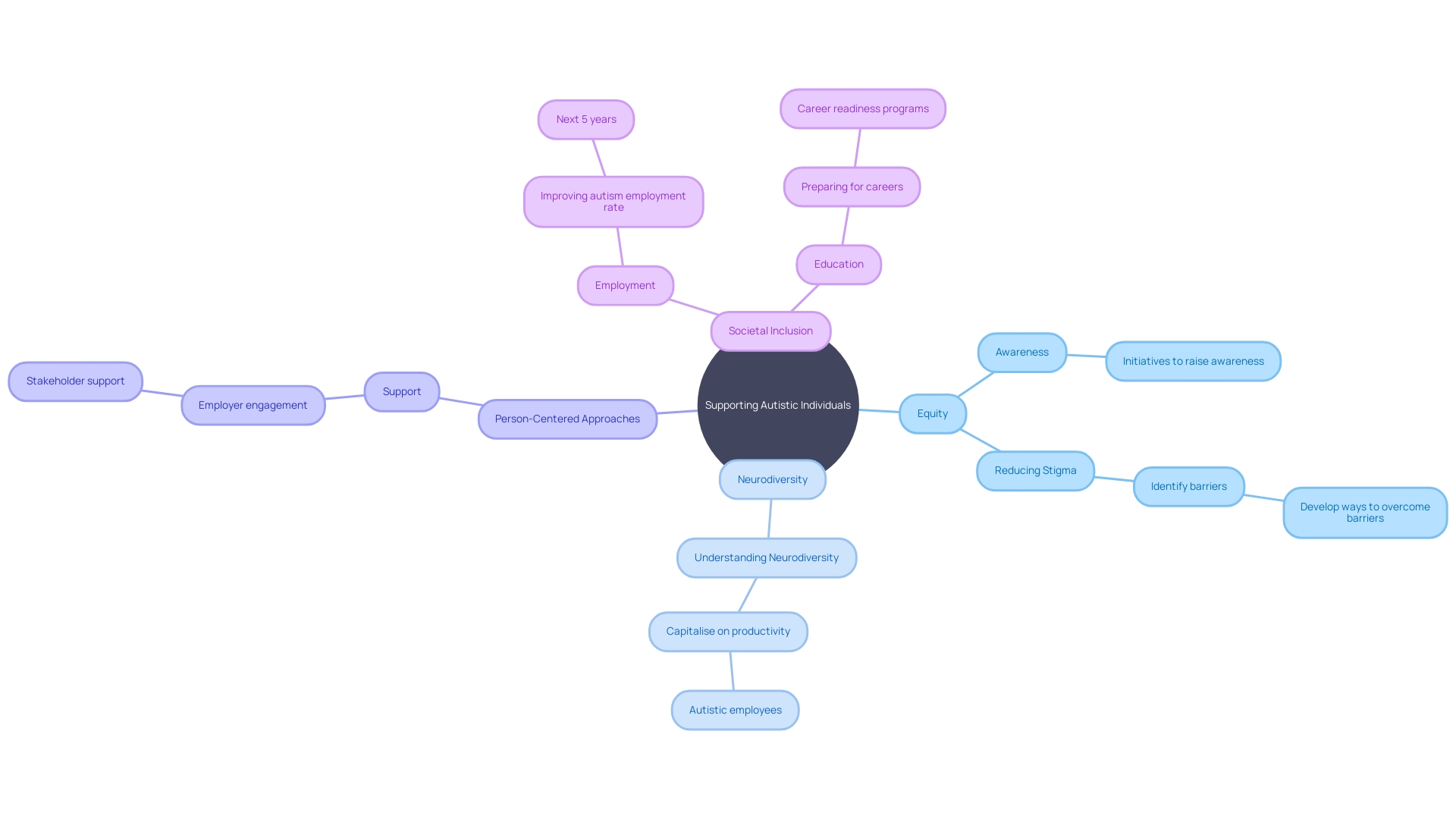
Ensuring Safety, Health, and Happiness
Autism advocacy is evolving to center on the well-being and happiness of autistic individuals, recognizing the necessity for mental health support and inclusive environments. Alarmingly, 8 out of 10 autistic people report mental health issues, indicating a societal shortfall in addressing their needs. Advocacy must now pivot towards accessible healthcare services, emphasizing mental health and the development of inclusive spaces conducive to their growth.
Through such targeted efforts, there's potential for a transformative impact on the lives of autistic individuals.
Autistic individuals face unique challenges that advocacy efforts must address. According to the National Autistic Society, around 700,000 individuals are on the autism spectrum in the UK alone. These individuals often experience difficulty with communication, routine changes, sensory sensitivity, and anxiety, underscoring the importance of understanding and tailored support.
Advocacy should aim to create conditions where autistic people can live engaged, peaceful, and well-supported lives across all domains—home, school, and leisure—aligning with the vision of equity espoused by the late Dr. David (Dan) R. Offord, who believed in making the societal race fair for all children, including those with disabilities.
Moreover, the Autism Welcoming Initiative exemplifies the kind of community-driven action needed to establish public spaces where autistic individuals feel comfortable and accepted. Similarly, The Arc of the United States, in collaboration with the United Health Foundation, has pledged to enhance mental health services for individuals with developmental disabilities, illustrating the growing commitment to intersectional support.
In the realm of research, open science principles are lauded for fostering rapid advancements in knowledge sharing, which can benefit autistic individuals by promoting a more robust understanding of autism and its co-occurring conditions. This approach, championed by figures like Michael M. Crow and Greg Tananbaum, has proven its value in crises like the pandemic, demonstrating how scientific collaboration can quickly yield life-changing outcomes.
The Kevin and Avonte Program is a poignant example of targeted advocacy, addressing the critical issue of wandering and elopement among autistic individuals; it honors the memory of two autistic teens and showcases effective community response to prevent such tragedies. Furthermore, state Medicaid plans play a crucial role in providing care and services to the autism community, highlighting the importance of policy in shaping accessible support systems.
To further bolster advocacy, public participation in policy-making is vital. The Interagency Autism Coordinating Committee (IACC) invites comments from self-advocates to influence autism research priorities, signifying the importance of community voices in shaping the future of autism support.
Statistics reveal stark disparities in employment for autistic individuals, with only 3 in 10 working-age autistic people in employment, compared to 8 in 10 non-disabled individuals. This gap not only reflects a need for targeted employment initiatives but also points to the immense untapped potential within the autistic community. Reviews exploring how to better recruit, retain, and develop autistic employees are underway, aiming to improve employment rates and leverage the productivity of autistic workers.
In conclusion, advocacy for autism charities must be multi-faceted, deeply informed by the lived experiences of autistic individuals, and firmly rooted in actions that promote their safety, health, and happiness. It's a call to action for all stakeholders—families, educators, healthcare providers, employers, and policymakers—to invest in a future where autistic individuals can thrive.
Enabling Autistic Individuals to Pursue Their Interests
Autism charity support is not just about advocating for rights; it's about nurturing the unique talents and interests of autistic individuals. Take, for example, Lil, who at 17 was transitioning from special education to an uncertain future. However, with the help of Friends of St James Park in Southampton, which offers a community-based café, networking, and volunteering opportunities, Lil could find a supportive environment to develop her skills.
Similarly, Haley Moss, diagnosed with autism at three, found her calling away from medicine and towards law, where she could embrace her passion for reading and writing, ultimately thriving in a career that values her unique perspective.
James's journey also highlights the power of supportive environments. Diagnosed with autism at three after initially being thought to have epilepsy, he discovered solace in art. His secondary school teacher encouraged him to share his work, leading to his first exhibition and the joyous discovery of scratchcards.
These stories underscore the importance of inclusion and the value of supporting autistic individuals in exploring their interests.
Further emphasizing the need for such support systems, statistics reveal a stark employment gap for autistic individuals. Only 3 in 10 autistic adults are employed, compared to 5 in 10 of all disabled people and 8 in 10 of non-disabled people. Autistic individuals also face the largest pay gap among disability groups.
Despite these challenges, initiatives are underway to bridge these gaps. Over the summer of 2023, a review was conducted with employers and stakeholders to improve the recruitment, retention, and development of autistic individuals in the workforce. The aim is to boost the autism employment rate significantly over the next five years.
Organizations and individuals are recognizing the need for more inclusive practices, as reflected in the work of the European Council of Autistic People (EUCAP) and the European Network on Independent Living (ENIL). In 2022, EUCAP co-signed a response to a Scottish Government report, advocating for better solutions to the institutionalization of autistic people. These efforts highlight the shift towards recognizing and embracing the neurodiversity of the workforce and the broader community.
The commitment to empowering autistic individuals is evident in the work of advocacy groups, educators, and employers who are creating environments where autistic individuals can thrive. By celebrating their unique strengths and providing opportunities for growth, we are taking steps toward a more inclusive society that benefits from the diverse talents of all its members.
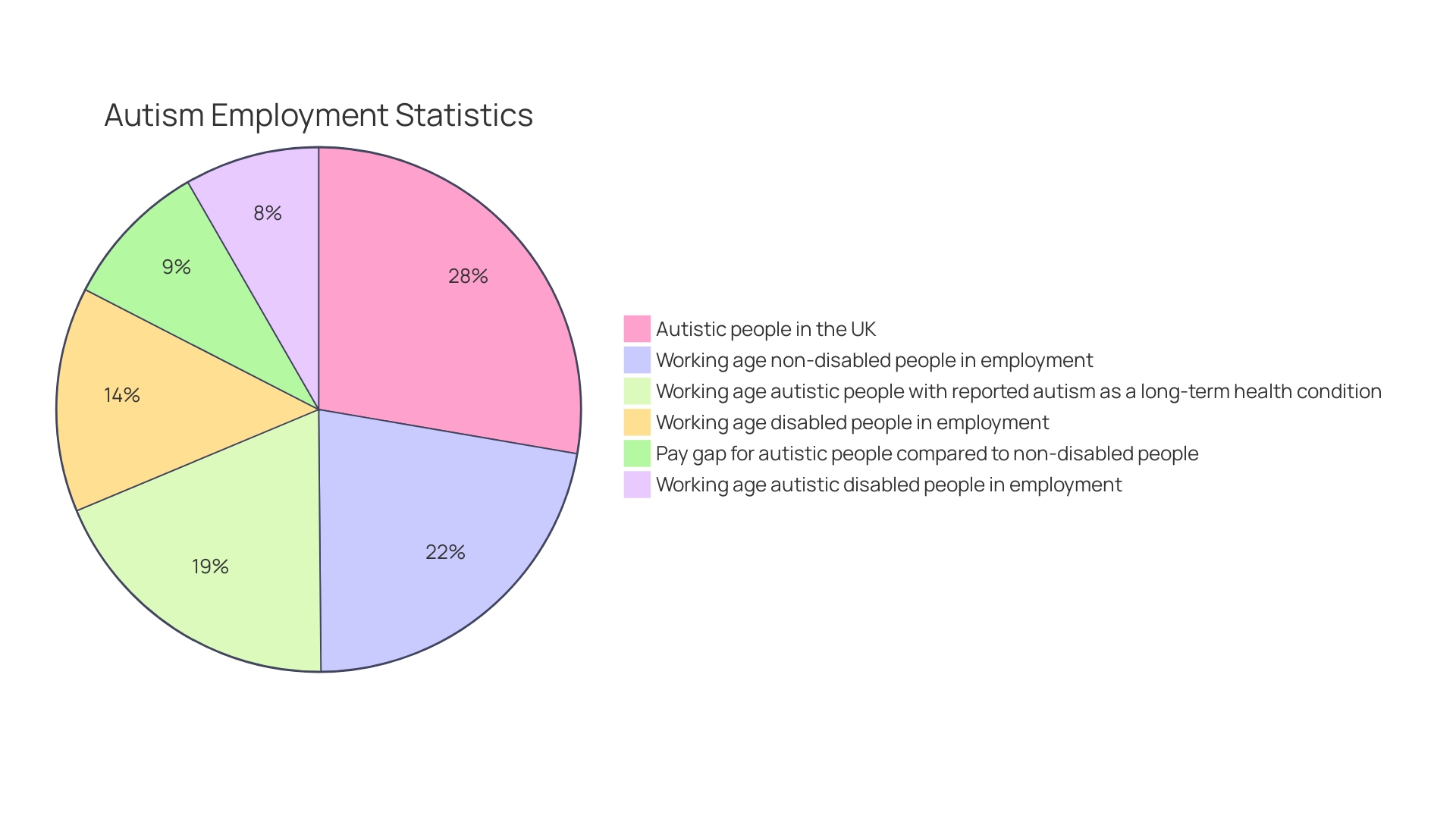
Avoiding Punishment and Harmful Interventions
Supporting individuals with autism requires a compassionate approach that focuses on enhancing their strengths and addressing challenges with understanding and care. Dr. David (Dan) R. Offord emphasized the importance of creating an equitable environment for children, particularly those with disabilities, by ensuring they have access to resources necessary for their development and well-being. This philosophy aligns with the need for evidence-based practices in autism support, which aim to understand the unique experiences of autistic individuals and provide interventions that promote lasting, positive changes.
The National Autistic Society highlights the diversity within the autism spectrum, noting the varying degrees to which individuals may experience communication difficulties, sensory sensitivities, and the need for routines. Tailoring support to each person's needs is crucial. For example, technology has been a game-changer for many, with initiatives like picture boards enabling non-verbal children to communicate more effectively, as seen in the success story of Joshua and his father's advocacy work.
Real-life cases, such as James from Eastbourne, demonstrate the transformative power of supportive interventions like the Picture Exchange Communication System (PECS), which allowed him to express himself through art, thereby fostering inclusion and reducing isolation. These narratives underscore the need for interventions that not only address immediate challenges but also nurture the individual's passions and skills.
Adverse event monitoring and transparent reporting are also essential components of ethical autism support, ensuring any negative outcomes are acknowledged and addressed. Open science, the sharing of scientific knowledge promptly, as advocated by Michael M. Crow and Greg Tananbaum, further supports the development of robust, community-validated interventions. This approach encourages collaboration and accelerates progress in creating and refining support strategies that truly make a difference in the lives of those on the autism spectrum.
Recommended Interventions and Strategies
Autism Speaks, a leading autism advocacy organization, has faced criticism for its approach to representing and supporting individuals on the autism spectrum. The controversy centers around the organization's messaging, portrayal of autism, and the strategies it endorses for helping autistic individuals. Critics argue that Autism Speaks has historically emphasized a narrative of autism as a disease that needs to be cured, rather than accepting and supporting the neurodiversity of individuals with autism.
One of the main points of contention has been the types of interventions and strategies recommended by Autism Speaks. In the past, the organization has been accused of promoting interventions that are not evidence-based and do not align with the preferences of the autism community. For instance, there have been debates around the effectiveness and ethical considerations of certain behavioral therapies endorsed by the organization.
Furthermore, Autism Speaks has been involved in various campaigns and fundraising efforts that have been met with mixed reactions. Some in the autism community feel that the organization's campaigns have at times focused more on the challenges of autism rather than on the strengths and potential of autistic individuals.
The organization has also faced scrutiny over its allocation of funds, with critics suggesting that a disproportionate amount of money goes toward research aimed at finding a cure for autism rather than to services and support that can improve the quality of life for autistic individuals and their families in the present.
In response to these criticisms, Autism Speaks has made efforts in recent years to address these concerns and shift its focus toward a more inclusive and supportive approach. The organization has updated its mission statement, increased the representation of autistic individuals on its board and in its decision-making processes, and has started to place a greater emphasis on services and resources that support the well-being and acceptance of autistic individuals.
The controversy surrounding Autism Speaks is a reminder of the importance of listening to the voices of the autism community and advocating for interventions and strategies that are respectful, person-centered, and evidence-based. It underscores the need for organizations to evolve and adapt in response to the needs and perspectives of those they aim to serve.
Communication-Based Interventions
To foster the mental health and equitable treatment of autistic individuals, it is essential to address their communication needs through specialized interventions. These interventions include a suite of alternative communication methods tailored to individual needs, such as sign language, augmentative and alternative communication (AAC) devices, and visual supports. Such approaches are vital for enabling autistic children and youth, particularly those with co-occurring emotional and behavior problems (EBP), to participate meaningfully in daily social interactions within educational settings and communities.
Statistics and research highlight a gap in intervention quality, emphasizing the need for interventions that are both effective and respectful of the autistic community. By embracing these communication strategies and advocating for their widespread availability, we can contribute to the creation of a fair and supportive environment that acknowledges the unique challenges and strengths of autistic individuals. In doing so, we uphold the principle voiced by the late Dr. David (Dan) R. Offord, who championed for a fair race for all children, including those with disabilities.
This commitment to equity and support is not only a cornerstone of mental health but also a reflection of the fundamental respect and dignity owed to every member of our society.
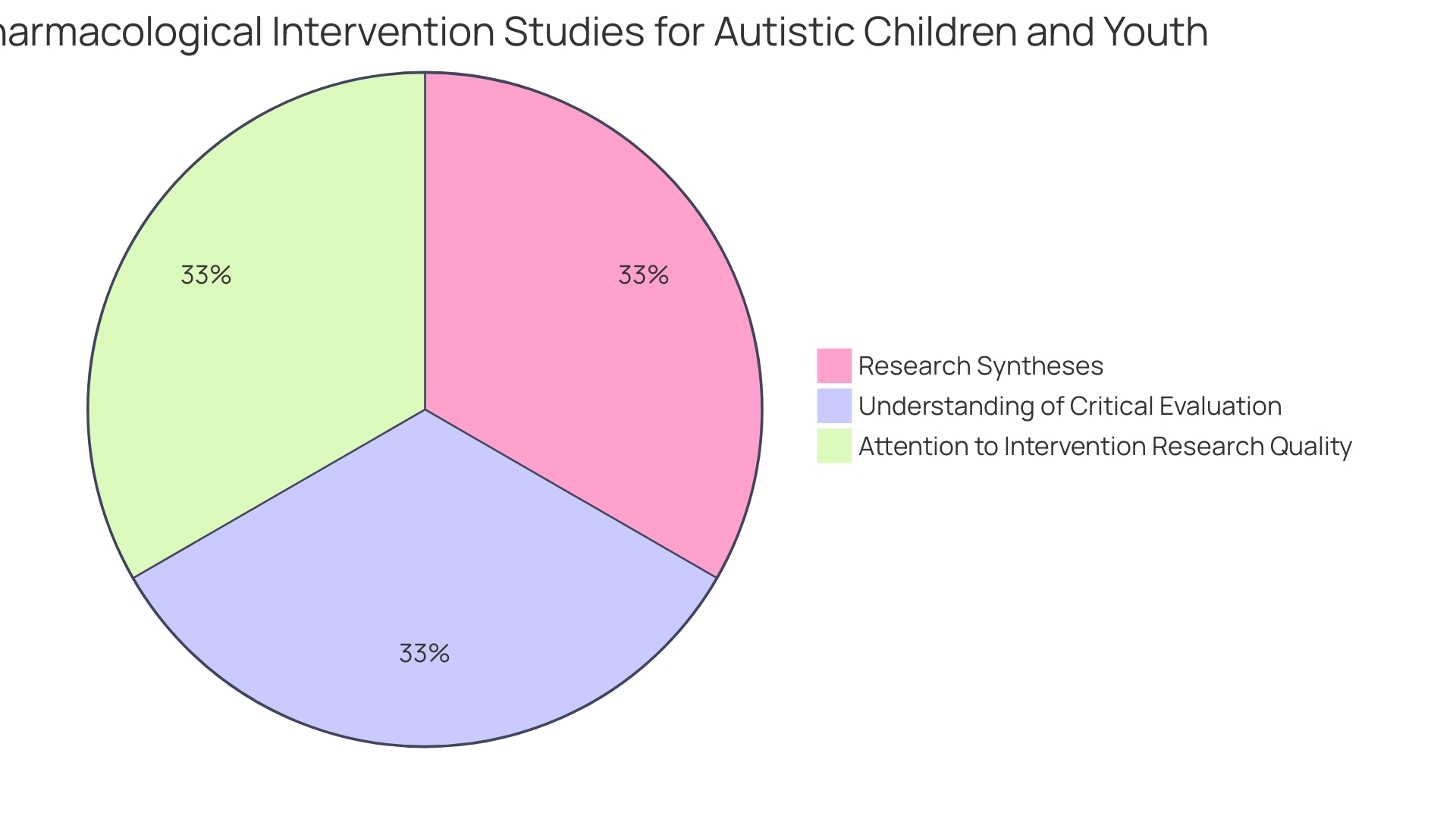
Behavioural and Educational Interventions
Equipping autistic individuals with the tools they need for success in education and social settings is crucial. Tailored approaches like Applied Behavior Analysis (ABA) therapy, social skills training, and individualized education plans (IEPs) play a significant role in fostering an environment where they can flourish. By endorsing these specialized interventions, we're not only supporting their personal growth but also contributing to a more equitable society where every child has the opportunity to participate fully in school, home, and leisure activities.
Dr. David (Dan) R. Offord, a renowned child psychiatrist, encapsulated this sentiment with his words, “I do not mind if my children are in a race as long as the race is fair.” This philosophy underscores the importance of acknowledging the unique needs and strengths of autistic children, as well as minimizing stressors and ensuring that caregivers have adequate resources for nurturing their children's development. With a significant percentage of individuals on the autism spectrum facing co-occurring intellectual disabilities, providing well-rounded support becomes even more imperative.
The landscape of autism and the understanding of its spectrum have evolved significantly. As per Dr. Jan Blacher, research professor of education and psychology, the prevalence of autism has risen from 1 in 2,500 to 1 in 36, reflecting a broader understanding of the condition beyond restrictive definitions. This shift necessitates a nuanced approach to interventions, tailored to the diverse abilities and challenges faced by those on the spectrum.
Autism Speaks, while a prominent voice in the autism community, has faced criticism for not fully embracing this diversity and flexibility in their approach.
In the context of providing support, it is essential to consider the potential biases in study designs that may overstate the effectiveness of interventions. Social validation processes should gauge the community's perspective on the goals, procedures, and outcomes of interventions, ensuring they bring meaningful change. Monitoring adverse events and addressing conflicts of interest are also vital for maintaining the integrity of support practices.
By committing to these principles, we pave the way for a more inclusive and fair race for autistic individuals, aligning with the vision of equity and well-being for all children as articulated by Dr. Offord.
Medical Support and Co-Existing Conditions
Autism, a condition touching 1 in 44 children, intertwines complex medical and support needs that extend beyond neurological factors. Autistic individuals face a heightened risk of numerous co-occurring health issues, such as epilepsy, mental health challenges, and even certain types of cancer, which can tragically lead to a reduced life expectancy. The situation of Claire, a child diagnosed with a rare condition, illustrates the harrowing journey families undertake to secure essential medical care amidst a labyrinth of insurance denials and insufficient social support systems.
Her story underscores the urgent need for accessible, specialized healthcare that can navigate the intricate web of autism's associated conditions.
The Autism Community in Action (TACA) emphasizes the transformative power of early treatment, supporting thousands of families in navigating the diagnostic and therapeutic process. Meanwhile, NeuroQure's pioneering work aims to expedite autism diagnosis, potentially within weeks of birth, to mitigate the protracted and emotionally taxing journey towards identifying ASD.
In addressing these medical complexities, it is vital to adopt a neurodiversity-affirming approach that values autism as a natural variation rather than a disorder to be cured. This perspective encourages the creation of supportive environments rather than focusing solely on medical interventions. Empathy and understanding from healthcare providers, who may need minimal additional training to effectively include autistic patients in their care, can make a significant difference, as per insights from Kristiina Tammimies of KIND at Karolinska Institutet.
Federal initiatives such as the IACC and the Kevin and Avonte Program showcase the government's commitment to enhancing research, coordination, and awareness. These efforts are amplified through state Medicaid plans that play a pivotal role in providing care and services to the autism community, which is overwhelmingly reliant on Medicaid for health insurance coverage.
The urgent call for comprehensive medical support is clear: it is not simply about treating autism but about embracing a holistic approach that addresses the full spectrum of health needs and supports the well-being of autistic individuals and their families.
Evaluating the Effectiveness of Interventions
When supporting autism charities, it's vital to apply a discerning eye towards interventions, scrutinizing their long-term value for autistic people. Emphasizing evidence-based practices, we must guard against those that lack empirical support or pose potential harm. The GRADE framework guides us in a systematic and transparent evaluation of evidence quality, factoring in risks of bias, social validation, and outcome variable design.
It's a sobering truth that not all interventions are created equal. This is mirrored in the employment sector, where only around 3 in 10 autistic individuals are employed, highlighting the need for initiatives that address awareness and stigma while harnessing the productivity of autistic employees. As Dr. David Offord poignantly stated, it's about making the race fair, ensuring that our interventions truly level the playing field.
This means that interventions should not just show effectiveness, but also resonate with community perspectives and contribute to a fair and supportive environment for autistic individuals. Our commitment to this standard was echoed in 2022, with substantial funding directed towards top charities, reflecting our pursuit of cost-effective opportunities that can make a real difference.
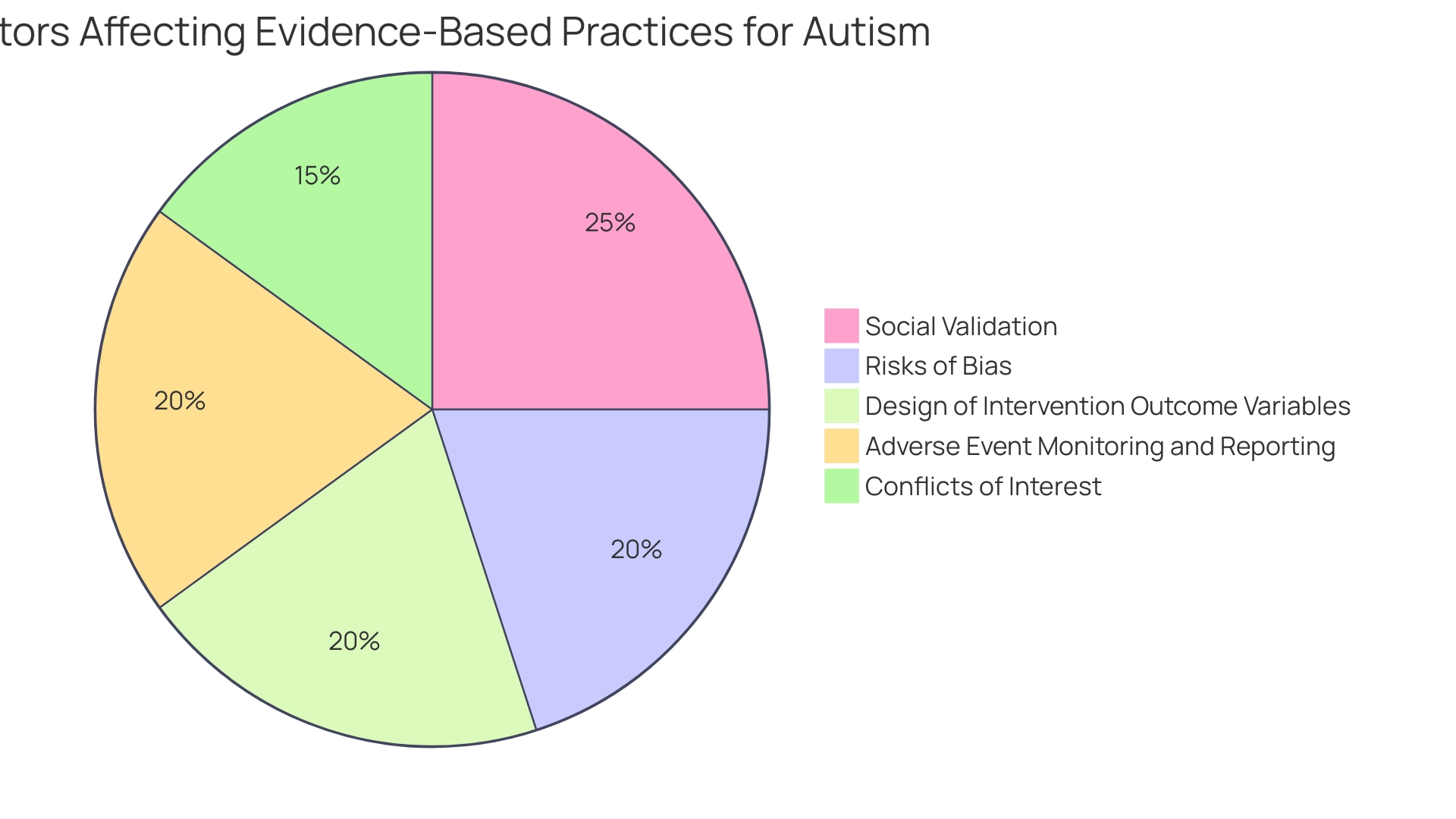
Involving Professionals and Trusted Resources
Navigating the support systems for autistic individuals can be challenging, but involving professionals and harnessing trusted resources can make a significant difference. Autistica's research indicates that while there are approximately 1 million autistic individuals in the UK, with a large majority desiring to work, employment rates for autistic adults lag significantly behind their non-autistic peers. Only 3 in 10 autistic adults are employed, compared to 8 in 10 non-disabled individuals.
Furthermore, autistic people face the most considerable pay gap among disability groups, earning a third less on average.
In response to these disparities, a comprehensive review was conducted that gathered insights from various stakeholders, including employers, autism charities, and autistic individuals themselves. This review focused on the recruitment, retention, and development of autistic employees and sought to identify and dismantle barriers to employment, aiming to boost employment rates within the next five years. The identified initiatives strive to amplify awareness, reduce stigma, and utilize the unique strengths of autistic employees.
Supporting this movement, the Kevin and Avonte Program exemplifies a targeted approach, addressing specific challenges such as wandering and elopement in the autism community. It provides grants to enhance public awareness, establish community partnerships, and develop emergency protocols. Moreover, profound autism advocacy highlights the necessity for round-the-clock care, emphasizing the diverse needs within the autism spectrum.
Addressing these issues requires a collective effort to support the entire autism community, as underscored by the ongoing advocacy for the Autism CARES Act's reauthorization. This act has been crucial in funding autism research and services, but there is an urgent need to sustain and expand these efforts to meet the community's evolving challenges comprehensively.
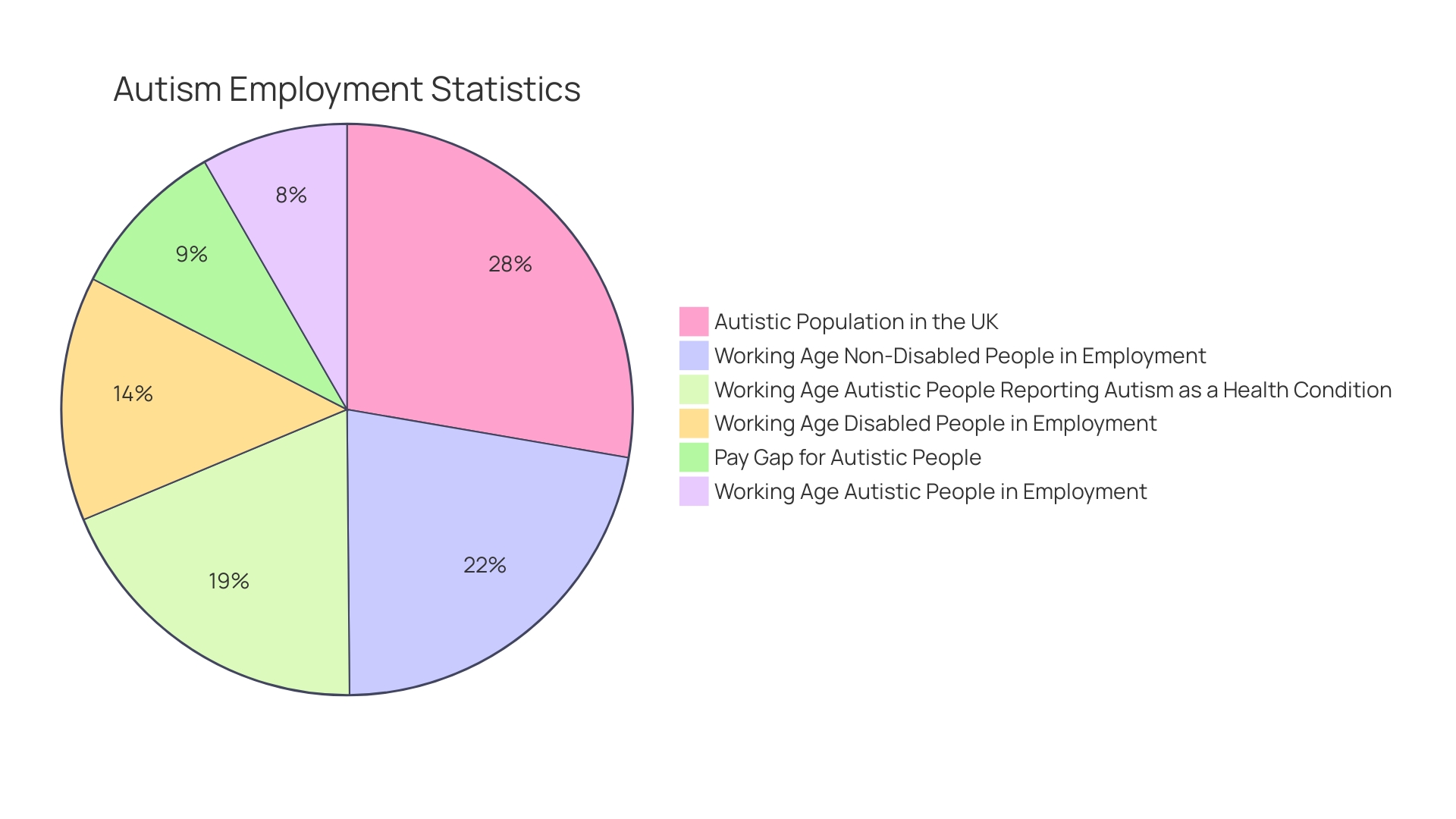
Consulting with Professionals and Using Trusted Guidelines
Engaging with specialists who are well-versed in autism, such as behavior analysts, educators, and healthcare professionals, offers a wealth of insights that are essential in championing the rights and support systems for autistic individuals. These experts, backed by their in-depth knowledge and evidence-based strategies, play a crucial role in addressing the profound challenges faced by the autism community. Moreover, adherence to esteemed guidelines, like those from the National Institute for Health and Care Excellence, anchors advocacy in a foundation of trusted and verified information.
With the autism employment gap being a persistent issue, as only about 30% of working-age autistic individuals are employed compared to 80% of non-disabled people, the insights from these professionals become even more critical. They can advise on inclusive hiring practices and workplace accommodations that not only promote neurodiversity but also contribute to a more equitable and productive society. The collaboration with experts is not just about enhancing opportunities for autistic individuals; it's also about valuing their contributions and striving for a society where everyone, regardless of neurology, can thrive.
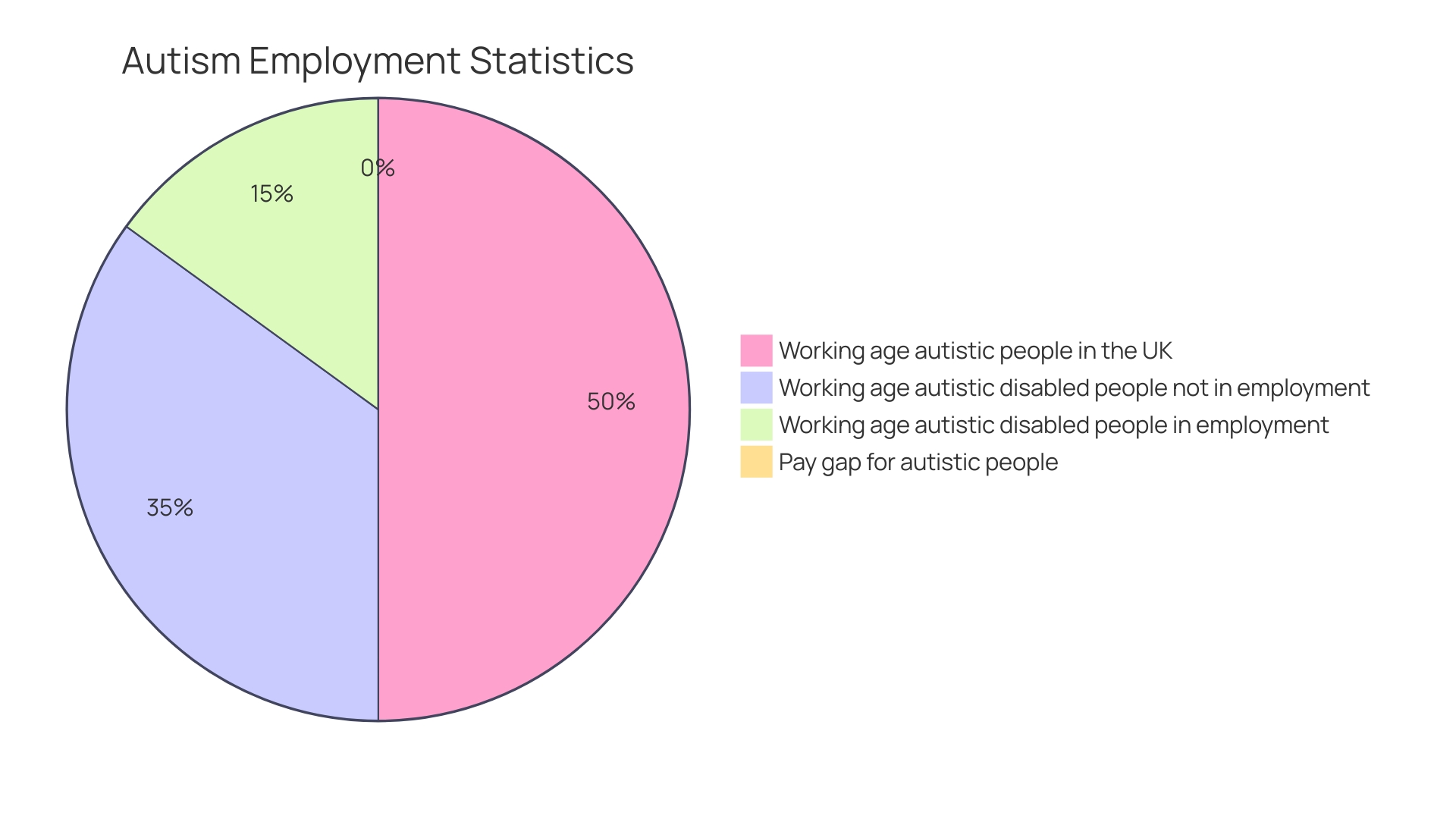
Empathy and Personalized Advocacy
Understanding and supporting the autism community goes beyond awareness; it requires a deep, empathetic connection that recognizes their unique experiences and challenges. This empathy allows us to champion autism charities more effectively by ensuring that the support provided is tailored to the individual needs of autistic people. When we engage with the autism community, we're not just listening; we're learning from them and ensuring their voices lead the advocacy efforts.
Embracing empathy in our advocacy means recognizing the double empathy problem, where communication breakdowns are not solely experienced by autistic individuals, but also by neurotypical people who may struggle to understand autistic perspectives. It's a two-way street that demands patience and a willingness to adapt communication styles from both parties.
Moreover, empathy in action has been demonstrated by organizations like Emirates and Dubai International Airport, who have introduced initiatives to enhance the travel experience for neurodivergent passengers. By providing rehearsal flying experiences, they help to demystify the travel process for autistic individuals, making their journeys more comfortable and less stressful.
Empathy also inspires technological innovations, such as the video accessibility plugin developed by the Ford Foundation for the WordPress community, and picture boards funded by Neurodiversity in Business. These tools were created to ensure that information is accessible to all, reflecting a compassionate approach to inclusive communication.
Ultimately, when we approach autism advocacy with empathy, we create campaigns and support systems that reflect the diverse and vibrant tapestry of the autism community. This results in a more inclusive society where the voices of autistic individuals are not just heard but are integral in shaping the support they receive.
Creating Inclusive Environments
In the pursuit of creating welcoming environments, engaging the autism community in meaningful ways holds great significance. Current strategies emphasize that inclusivity is not merely a nice-to-have; it is critical for the well-being and productivity of autistic individuals. With approximately 1 million autistic people in the UK, according to Autistica, and only 3 in 10 of working-age autistic individuals employed, there's an urgent need to address societal barriers and cultivate supportive spaces.
In addressing these challenges, it is vital to implement Universal Design principles, crafting environments that accommodate everyone's needs. For example, in educational settings, moving away from segregating students based on abilities has revealed that all students benefit from more inclusive approaches. This also translates to the workplace, where a review involving employers and autism charities is underway to improve the recruitment and retention of autistic individuals, aiming to lift the autism employment rate significantly within five years.
Open science practices are another facet of inclusivity, with experts like Burke and Lees advocating for their adoption to enhance research robustness. Collaboration between academic researchers and the autistic community is crucial in shaping research that affects lives directly. Initiatives like community councils have been formed to ensure that autistic individuals are not just participants in research but active contributors shaping the study's direction.
Accessibility, as highlighted by advocates, is the bedrock of inclusivity. Efforts to make physical spaces, public transportation, and digital platforms barrier-free empower people with disabilities to engage fully in society. When information technology is made accessible, even those with additional learning needs can participate meaningfully, as demonstrated by Mencap's commitment to improving its IT services through direct feedback from staff with learning disabilities.
Ultimately, fostering inclusive environments is about recognizing the humanity and potential in each individual. As we strive for a world where autistic people feel supported and valued, it is clear that inclusivity is not just a strategy but a moral imperative.
Advocating for Individualized Education Plans (IEPs) and SEND Plans
Tailoring educational approaches to address the diverse needs of autistic students is essential for fostering a truly inclusive learning environment. Special education plans, such as Individualized Education Plans (IEPs) and Special Educational Needs and Disabilities (SEND) Plans, play a pivotal role in this process. These plans provide a structured framework that helps educators understand and meet the unique educational requirements of autistic individuals.
In the pursuit of educational equity, the Autism Community in Action (TACA) emphasizes the importance of comprehensive medical research, treatment options, therapies, and nutrition information for the autism community. While not a substitute for professional medical or legal advice, such resources can guide families and educators in advocating for and implementing effective support systems within schools.
Haley Moss's journey, from being diagnosed with autism at the University of Miami to becoming a lawyer, exemplifies the profound impact that supportive educational settings can have on autistic individuals. Her story underlines the importance of strong support networks, both at home and within the educational system, which empower students to navigate their academic paths and achieve their goals.
Moreover, the American Institutes for Research (AIR) highlight the significance of formal and informal assessments, including the Self-Determination Assessment, in crafting individualized educational strategies. Engaging school professionals and families in the assessment process ensures that the educational, socio-emotional, and functional skills of autistic students are comprehensively evaluated and catered to.
Recent news reports a resurgence in disputes between families and school districts over special education services, as noted by The Center for Appropriate Dispute Resolution in Special Education (CADRE). This underscores the ongoing challenges and the critical need for clear, accessible pathways to resolve such disagreements amicably and effectively.
The law's provisions for educational evaluations at public expense, due process hearings, and Independent Educational Evaluations (IEEs) are central to safeguarding the rights of autistic students. Understanding these options is crucial for parents and educators to ensure that students receive the support they need.
Transition services are fundamental to preparing autistic students for life after high school, including further education, employment, and independent living. Identifying a student's postsecondary goals and the necessary transition services to reach them requires thorough and age-appropriate assessments.
Acknowledging the social model of disability helps shift the paradigm from viewing autism as a pathology to recognizing it as a difference that educational environments should accommodate. This shift is vital for embracing diversity and promoting the inclusion of autistic individuals.
The emphasis on inclusion in early childhood education, as articulated in official recommendations, sets the stage for lifelong inclusion. It calls for the collaboration of state and local agencies, educational institutions, and families to support individualized programming and the inclusion of children with disabilities.
Educators like Don and Dr. Aleksandra Hollingshead, who focus on the engagement of students with autism through the Universal Design for Learning framework, demonstrate that specialized professional development can enhance the educational experience for autistic students.
In summary, ensuring that autistic individuals receive appropriate educational support is not just a matter of legal compliance but a commitment to nurturing their growth and success. It involves a collective effort from the community to recognize and address the unique skills and challenges of autistic students, thereby making 'the race fair' for every child.
Promoting Social Integration and Reducing Isolation
Autism advocacy is more than just support; it's a commitment to enhancing the quality of life for autistic individuals by fostering environments that encourage social inclusion and reduce feelings of isolation. With recent estimates suggesting approximately 1 million people in the UK are autistic, the need for such advocacy is more pressing than ever. Unfortunately, employment statistics reveal a stark disparity, with only 3 in 10 autistic adults finding work compared to 8 in 10 non-disabled individuals.
This gap is further widened by the significant pay difference, where autistic individuals earn a third less on average.
Creating inclusive recreational activities, community programs, and peer support groups is essential to provide platforms for social interaction and help autistic individuals forge a strong sense of community. The power of these initiatives is evident in the words of Dr. Dan R. Offord, who emphasized the importance of a 'fair race' for all children, including those with disabilities. By ensuring equitable participation in all aspects of life, we contribute to the mental health and well-being of autistic individuals.
The recent review launched on World Autism Awareness Day echoed these sentiments, gathering insights from employers, organizations, and autistic individuals themselves to address employment barriers. The aim is to significantly improve the autism employment rate over the next five years, focusing on awareness, stigma reduction, and leveraging the productivity of autistic employees. Autistic identity, which intertwines personal and social facets, plays a crucial role in shaping life choices and career paths.
Recognizing autistic identity as a core aspect of the self can guide individuals towards careers that align with their unique strengths.
The National Autistic Society's Autism Accreditation program signifies the strides made towards quality support for autistic people. Over 500 organizations worldwide have met the standards of excellence, demonstrating a commitment to continuous development and improvement. These efforts align with the need to recognize the unmet needs and assets that autistic individuals bring to their communities.
In conclusion, autism advocacy is about more than just support; it's about creating a society where autistic individuals are embraced for their unique contributions, can participate fully in the workforce, and enjoy a sense of belonging within their communities.
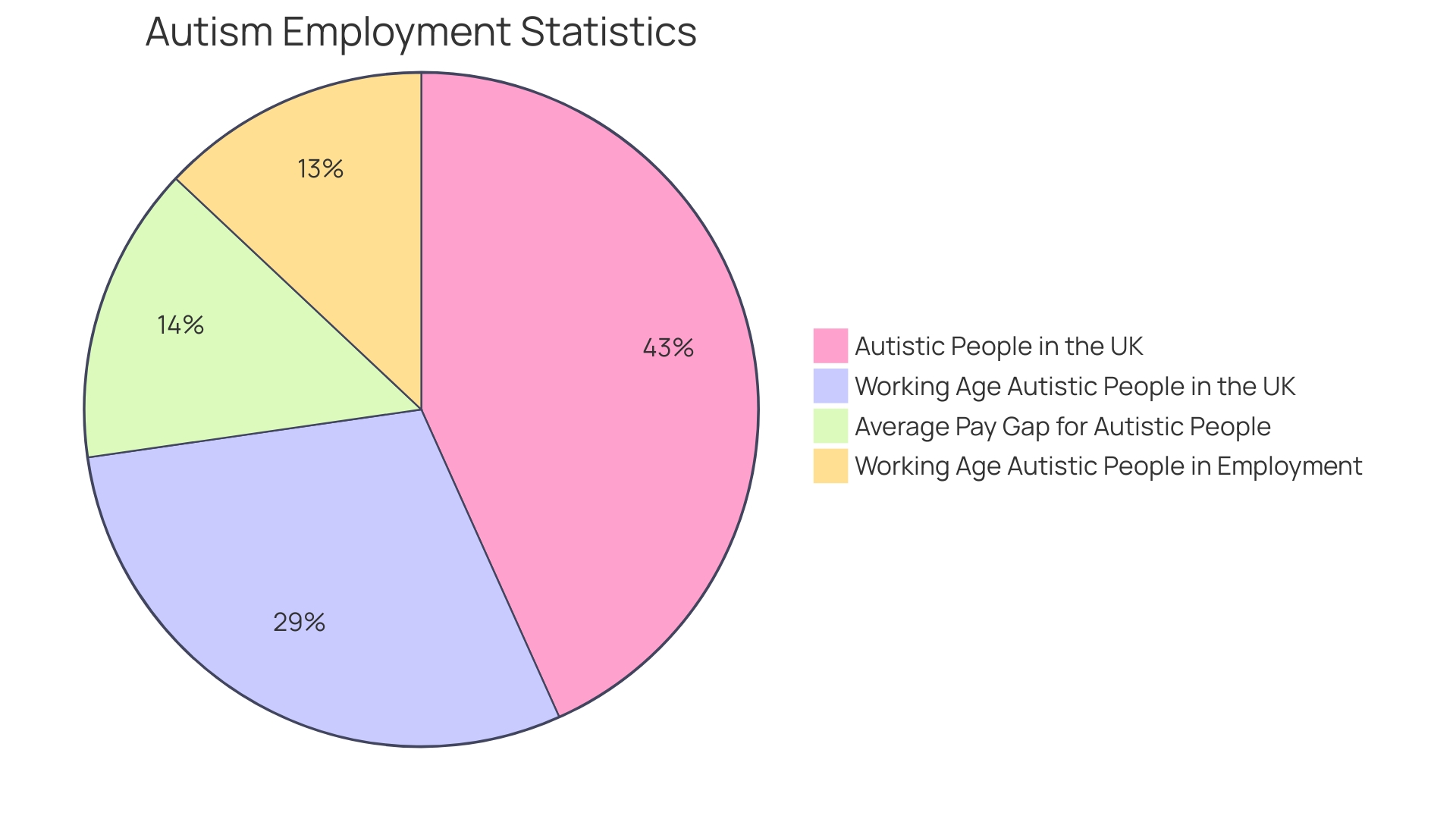
Conclusion
Advocacy for autism is a multifaceted endeavor that requires strategic action, community engagement, and a commitment to the well-being of autistic individuals. By embracing key principles such as passion, informed action, information sharing, and respect for Autistic identity, we can shape inclusive policies and practices.
Person-centered and dignity-promoting support is crucial in recognizing the strengths and challenges of autistic individuals. Creating inclusive environments and ensuring safety, health, and happiness are essential. Targeted interventions, such as communication-based strategies and behavioral and educational approaches, play a vital role in supporting autistic individuals.
It is important to evaluate the effectiveness of interventions, involve professionals and trusted resources, and promote empathy and personalized advocacy. By following these principles and strategies, we can empower Parent Advocates to navigate challenges and ensure the well-being of their children on the autism spectrum.
In conclusion, advocacy for autism requires a comprehensive approach that goes beyond raising awareness. It involves taking action, engaging the community, and prioritizing the needs of autistic individuals. By embracing key principles, creating inclusive environments, and implementing effective interventions, we can work towards a future where autistic individuals can thrive and be fully included in all aspects of society.
Together, we can make a meaningful difference in the lives of autistic individuals and their families.




